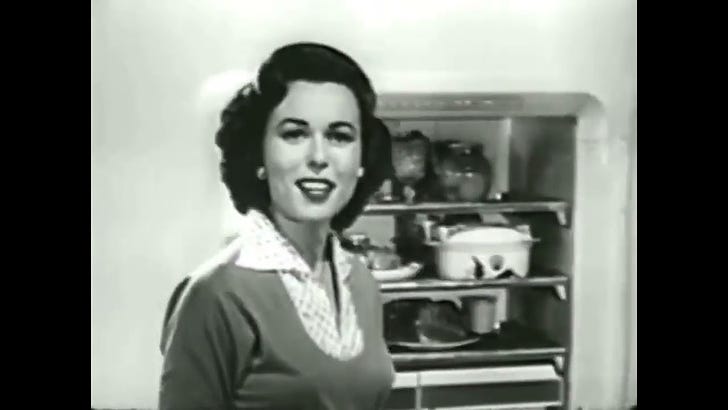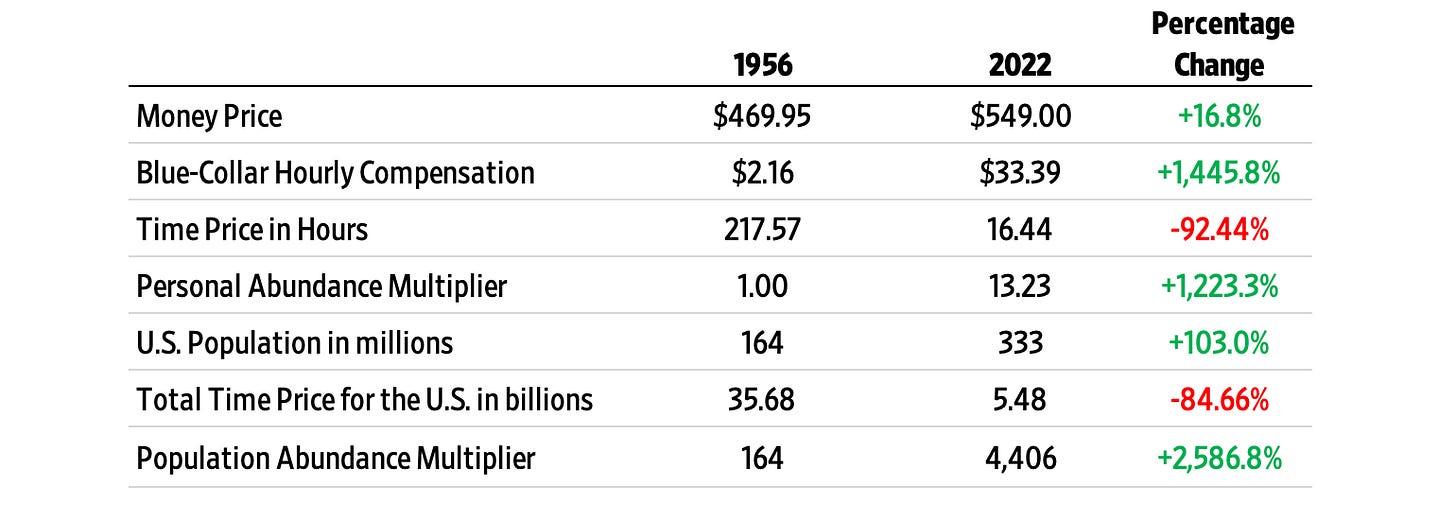Refrigerator Abundance
For the time to earn the money to buy one refrigerator in 1956, you get over 13 today. While U.S. population doubled in the last 66 years it takes 85 percent less time to give everyone a refrigerator.
In 1956 you could buy a top of the line Frigidaire for only $469.95. Back then blue-collar compensation (wages and benefits) was around $2.16 an hour making the time price around 217.57 hours. Today you can pick one up at Home Depot for $549.00. Hourly compensation has increased to $33.39 an hour, so the time price has fallen by 92.44 percent to 16.44 hours. You get 13.23 refrigerators today for the time price of one in 1956. Refrigerator innovation has been growing at an annual compounded rate of around 4 percent. At this rate, personal refrigerator abundance doubles every 17.7 years.
In 1956 U.S. population was around 164 million. We have more than doubled in size to over 333 million today. The total time required to earn the money to buy everyone a refrigerator in 1956 was around 35.6 billion hours. The time to provide everyone today would only take 5.48 billion hours. We’ve doubled population while reducing the time to refrigerate everyone by 84.66 percent.
We can measure population level refrigerator abundance by multiplying personal refrigerator abundance by population size. In this analysis we went from a value of 164 in 1956 to 4,406 in 2022, a 2,586.8 percent increase. Population level refrigerator abundance has been increasing at a 5.1 percent compound annual rate, doubling every 14 years.
Elasticity measures the relationship between to variables. Every one percent increase in population corresponded to a 11.87 percent increase in personal refrigerator abundance (1,223.3 percent ÷ 103 percent) and a 25.1 percent increase in population refrigerator abundance (2,586.8 percent ÷ 103 percent). More people have been making refrigerators much more abundant.
The next time you open your refrigerator to enjoy a cool beverage or a frozen dessert, thank all of our fellow human beings who work to discover and create little bits of knowledge each day that show up in the innovation abundance all around us.
You can learn more about these economic facts and ideas in our forthcoming book, Superabundance, available for pre-order at Amazon. Jordan Peterson calls it a “profoundly optimistic book.”
Gale Pooley is a Senior Fellow at the Discovery Institute and a board member at Human Progress.






